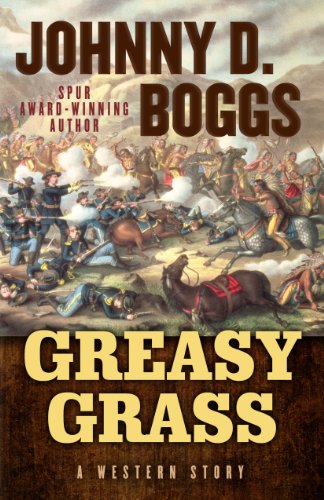Greasy Grass
Johnny Boggs’ take on the Battle of Little Big Horn is an interesting mélange of viewpoints. From Custer’s widow to his little brother Boston to Lakota chief Crazy Horse, we are transported from one end of the battlefield to the other, from Montana to the New York City of 1926. And the infamous debacle unfolds through each of these voices.
Boggs, a Spur Award winner for his western novels, attempts an ambitious project in a short book. It is reminiscent of Shelby Foote’s fictional portrayal of the Battle of Shiloh through multiple voices in Shiloh. The problem here is that there are well over 40 individual viewpoints in just over 250 pages. The only voice heard from twice is Libbie, Custer’s widow. Some of the narrators appear only fleetingly, in no more than a page and a half, there and then gone before we can get to know them, before we can make a connection. And as might be expected with such a large cast of narrators, individual voices can be hard to discern. They tend to meld together.
But the greater message is that Little Big Horn, like all battles from the beginning of time, was fought by more than just the commanders. Boggs gives voice to all classes of soldier and Sioux, to the desperation of Custer’s command and the determination of their foe. And in what may be the most well-drawn voice in the entire book, he captures Libbie Custer’s abiding love and deep mourning for her “Autie.”










